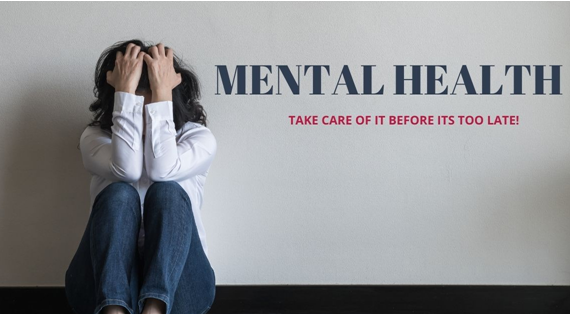How to deal with your mental health during lockdown
Making a few changes for your mental health can make you happier, healthier, and more productive. Here are some suggestions that cost nothing or take very little time. Just a few small changes of how you live can make a big difference. Start today!
1. Talk about your feelings
Telling people about your feelings doesn’t mean you’re weak. It can be a step in the right direction to take charge of your wellness and do what you can to stay healthy. Talking about your problem can help you deal with it. Simply listening to someone can make them feel supported and less alone. And it goes both ways! If you open up to someone, they might encourage you to do the same.
It’s not easy to describe how you’re feeling. Is it tense? Is it exciting? Is it a mix of both? You don’t need to sit your loved ones down for a long conversation about your wellbeing. Sometimes these talks happen naturally, like when you’re doing something together.
2. Keep active
Regular exercise is important because it releases chemicals in your brain that make you feel good. Exercising can boost your self-esteem, help you sleep better, feel more alert and improve your mood.
There are many ways to stay active and healthy. You don’t have to go to the gym or do a sport. Walks, gardening, and housework can also help you keep fit. Experts recommend that most people exercise for at least 30 minutes five days a week. Try to find some physical activity that suits you and make it part of your routine.
3. Eat well
The food we eat can have an instant as well as a lasting effect on your mental health. For example, caffeine and sugar can have a quick effect on how we feel, but our brains need a balance of nutrients to stay healthy and function well. Generally, the rule is that if you are eating more than one type of food, you should try to have a mix of carbs, protein, and fat. Our bodies need this balance to function.
A balanced diet that is good for your mental health is also good for your physical health. This includes eating three meals each day and drinking plenty of water. Remember to eat lots of fruit, vegetables, nuts, seeds, dairy products, and fish to get a healthy balance.
4. Drink sensibly
Drinking alcohol to change your mood is not a good solution. You may drink to deal with fear or loneliness, but it only solves the issue temporarily. When you get sober again, you will feel worse because of the effects of withdrawal from alcohol. Drinking is not a solution for difficult feelings.
Alcohol is a depressant, which means it temporarily helps you feel better. However, it hurts your liver and other organs, and too much alcohol will do even more damage. There are healthier ways to be happy. There are many healthy, enjoyable ways to cope with tough times than drinking alcohol. Stay within the recommended weekly alcohol limits: 14 units for men and women.
5. Take a break
When you’re bored at work, switching tasks is good for your mental health. It could be a five-minute break to clean up your kitchen, thirty minutes out for lunch, or even exploring somewhere new for the weekend. Some people even go out with their hammock chair for camping because that’s a way of taking break for them.
Wrapping Up
For many people, smoking, drug use, and alcohol consumption are ways to cope with difficult feelings such as depression and anxiety. The short-lived effects of substances, however, are just that — short-lived. Nicotine and drugs, like alcohol, don’t actually deal with the root of the issue; they just cover it up temporarily.




